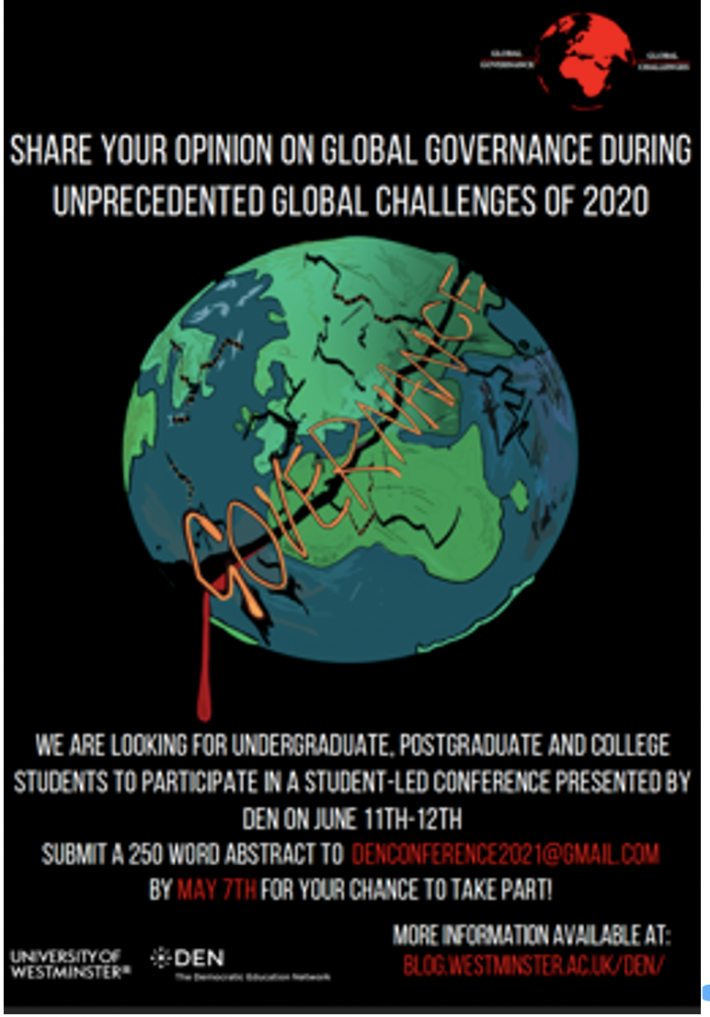Democratic Education Network (DEN) hosted its annual international student conference on 11th and 12th May 2021. This conference, like DEN’s other ongoing projects, was organised collaboratively, managed and delivered by students and academic staff. It attracted 50 individuals made up of fellow students, families, and friends from different universities all over the world including the UK, Vietnam and India.
The conference programme included around fifty speakers engaged in discussion and debates covering different disciplines such as economics, politics, sociology, law and history. The panel topics ranged from globalization, migration, gender, media, democracy, populism, to the regional geopolitics in the Middle East, China and Africa.
DEN’s conference took place in the middle of the Covid-19 pandemic. Unlike in previous years, it was fairly challenging and difficult for the groups to gather. The conference had to be shifted online. As we have been working together on several projects such as DEN’s annual book, this was not a completely complex operation. We simply had to work out a different method, to design, plan, organise and deliver the project.
Organising a conference requires different phases which need to be taken care of. Whilst the discussion groups of the conference are crucial, we must also manage workshops to suit different groups of students. The challenge for us was how to use computer hardware and software. Most of the students have used both Blackboard, MS Teams and Zoom.
Given that the conference was now online we hoped that it would attract students from all over the world if we could get the timing right. By looking at the online format from this other perspective, it became clear that we would be able to cover more geographic regions and therefore involve more students. As well this idea became clearer when we were able to promote the conference abroad to our international partners from different universities. Therefore, we came to involve students from over 30 countries, with speakers from India and Vietnam who have used the opportunity to present their own views and ideas to such contrasting regions of Western Europe, to the students in London. The outcome was also presented more widely to colleagues in Russia, the United States and across the world after being published in the following annual book publication.
A collaboration of cultures, ideas, and perspectives has always been one of the aims for DEN, with the academic conference as a prime opportunity to explore these outlets. Being able to include people internally from the University of Westminster as well as external students and alumni allowed us to showcase the perspective and opinions that matter to us.
From the first session right to the last, panels participants were actively engaged. After all, the conference of 2021 has taught us that, despite limitations, the participants had an opportunity to broadcast and share their ideas regardless of their region, background or social status.
This celebration of the very values DEN prides itself on shone within the online conference and is a testament to the dedication of the members of DEN that we produced such a successful event. While we cannot wait for the next conference in 2022 to be held once again in person, to be able to have experienced stories and academic pieces from individual bedrooms across the globe is something special and gave a graciousness that those involved will never lose.
Dmitrijs Zujevs, Graduate and Alumni
Jamie Greenfield, BA (Hons) Politics

DavidFoubs
Russians have woken up in a different country, one seeking internal enemies to blame for the country’s descent into economic isolation and hardship plsHelpUkraine03202218